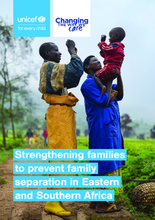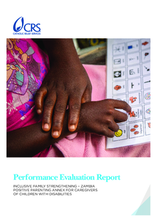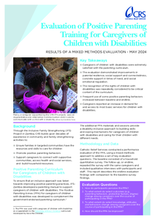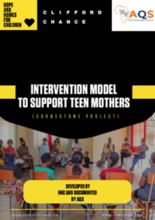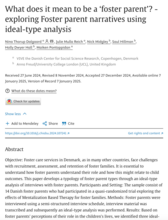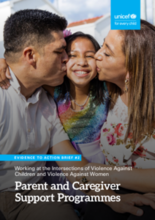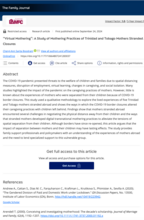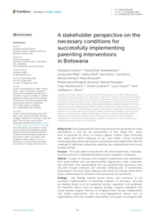Displaying 21 - 30 of 947
This paper explores strategies to prevent the separation of children from their families, drawing on evidence from Eastern and Southern Africa. It highlights the importance of strong care systems, holistic family support, and coordinated services to keep children safely within their families and communities.
The first comprehensive “Benchmarking Report on Parenting Support Policies and Programs in the Republic of Serbia” aims to support national and local efforts to improve the availability and quality of systemic, cross-sectoral support for parents and caregivers in Serbia, in order to ensure the optimal development of children and young people.
This report evaluates the Inclusive Family Strengthening (IFS) project's impact on caregivers of children with disabilities in Zambia. It highlights significant improvements in caregiver resilience, social support, and access to essential services. The report notes increased positive parenting behaviors, such as showing affection and rewarding good behavior, and a reduction in the use of corporal punishment.
This report provides an in-depth analysis of the Positive Parenting Annex (PPA) implemented by Catholic Relief Services in Zambia. This initiative aimed to support caregivers of children with disabilities by enhancing their parenting skills and resilience.
The Teenage Mother project is an intervention model to support teen mothers, developed by Hope and Homes for Children (HHC) in Rwanda. The documents provides an in-depth analysis of the challenges faced by teen mothers, the prioritization of causal factors, and the implementation of the Active Family Support (AFS) model to address these challenges.
This paper develops a typology of foster parent types through an ideal-type analysis of interviews with Danish foster parents.
A well-established and growing body of evidence demonstrates the multiple ways in which violence against children and violence against women intersect or overlap. This brief summarizes what is known about the potential for parent and caregiver support programmes to reduce both violence against children and violence against women, and why addressing these intersections matters for children’s protection and well-being.
This study used a qualitative methodology to explore the lived experiences of five Trinidad and Tobago mothers stranded abroad and shows the ways in which the COVID-19 border closures altered their caregiving practices with children left behind.
This study seeks to evaluate the real-world experiences, challenges, and best practices in implementing parent support programs in Botswana.
This study protocol outlines the first randomized controlled trial of Hope Groups—a 12-session psychosocial, mental health, and parenting support program—among Ukrainians affected by war. The trial aims to assess its impact on caregiver mental health, violence prevention, and family well-being, with potential for global adaptation and scale-up in other crisis-affected settings if proven effective.

